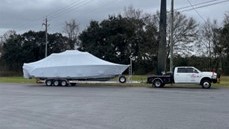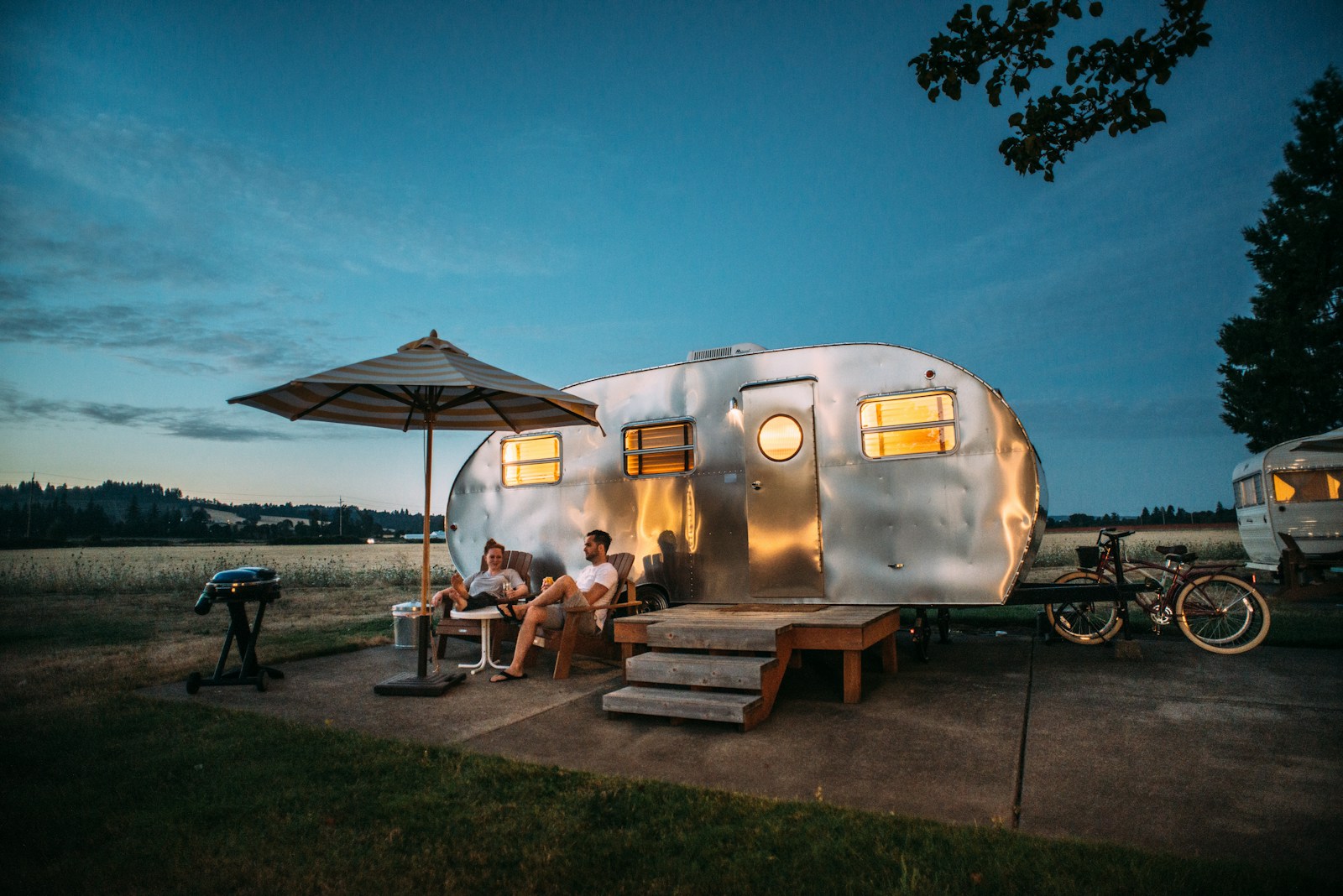When it comes to towing, your vehicle’s tow hitch is more than just an accessory—it’s an essential tool that determines safety, efficiency, and overall towing experience. Whether you’re hauling a camper to explore the great outdoors, transporting a boat for your next adventure, or towing a trailer for work, choosing the right tow hitch is crucial.
To ensure you find the perfect match for your needs, it’s essential to shop from a diverse selection of tow hitches tailored to various towing requirements.
This comprehensive guide will walk you through the ins and outs of selecting the best tow hitch, with the goal of simplifying your decision and ensuring your towing experience is as smooth as possible.

Understanding Your Towing Needs
The first step to selecting the perfect tow hitch is understanding your specific towing requirements. Here’s what to consider:
1. Type of Trailer
Identify the type of trailer you’ll be towing—whether it’s a camper, boat, livestock trailer, or utility trailer. The size and weight of the trailer will heavily influence your tow hitch selection.
2. Towing Weight Capacity
Calculate the weight of what you’ll be towing, including the trailer and its contents. Be sure to also check your vehicle’s towing capacity in the user manual. Selecting a tow hitch that matches or exceeds this weight is critical for safety.
3. Frequency and Distance
Think about how often and how far you’ll be towing. Occasional short trips may require a standard hitch, but frequent long hauls may benefit from a specialized or heavy-duty option.
4. Terrain and Conditions
The terrain you’ll be traveling on also plays a role. For example, rough or uneven roads may demand a hitch with added stability, while mountainous regions may call for specific braking systems.
5. Local Towing Regulations
Certain regions have specific towing regulations (e.g., safety chain requirements or lighting standards). Make sure to familiarize yourself with and comply with these rules.

Types of Trailer Hitches
Trailer hitches are designed for different towing needs. Understanding the types can help you pick the right one:
1. Class I-III Hitches (Light Duty Applications)
These hitches are ideal for small cars and light towing tasks, such as hauling bikes, small utility trailers, or cargo carriers. Weight capacities range from 2,000 to 6,000 pounds.
2. Class IV-V Hitches (Heavy Duty Applications)
Perfect for larger vehicles like SUVs and trucks, these are designed for heavier loads, such as medium-sized boats or campers, with weight capacities up to 17,000 pounds.
3. 5th Wheel Hitches
These hitches are commonly used for towing larger trailers or RVs, offering higher stability and weight capacities up to 25,000 pounds.
4. Gooseneck Hitches
A popular choice for hauling livestock and heavy-duty loads, these hitches provide a tighter turning radius and exceptional weight distribution.
5. Weight-Distributing Hitches
Designed to evenly distribute the weight of the trailer across the towing vehicle’s axles, these improve stability and reduce sway.

Trailer Hitch Components and Specifications
Understanding the components of a trailer hitch can help you make an informed decision. Here are the key parts:
- Ball Mount: Attaches to the hitch receiver and supports the trailer ball.
- Trailer Ball: The metal ball that connects to the trailer coupler.
- Hitch Receiver: The tube that accepts the ball mount.
- Safety Chain Loops: Attach the trailer to the vehicle for added security.
- Electrical Bracket: Connects the trailer’s electrical systems (lights and brakes) to the towing vehicle.

Choosing the Right Trailer Hitch for Your Vehicle
1. Compatibility with Your Vehicle
Ensure the hitch fits your vehicle’s make, model, and year. Check specifications or use online tools like those on Reese-Hitches.com to verify compatibility.
2. Weight Capacity
Choose a hitch that meets your towing weight requirements. If in doubt, opt for a higher capacity for added safety.
3. Construction Quality
Look for durable hitches made of high-quality materials such as stainless steel or powder-coated steel to resist corrosion.
4. Reviews and Research
Read customer reviews and ratings for insight into the hitch’s performance and reliability. Trusted brands like Reese, CURT, and B&W Trailer Hitches are good starting points.
Installation and Maintenance
Proper Installation
For safe towing, have your hitch installed by a certified mechanic or follow the manufacturer’s instructions closely.
Regular Maintenance
- Inspect the hitch regularly for signs of wear or damage.
- Lubricate moving parts like the trailer ball to prevent rust.
- Ensure the safety chains and electrical brackets are in good condition.
Upgrades
Consider upgrading to a heavy-duty hitch if your needs change over time.

Essential Safety Features and Accessories
Safety and functionality are critical when towing. Invest in the following accessories:
- Safety Chain Loops to prevent trailer separation.
- Electrical Bracket for seamless lighting and brake connections.
- Locking Hitch Pin to secure the hitch to your vehicle.
- Adjustable Drop Hitch to ensure level towing.
- Dual Ball Hitch for versatility with different trailer couplers.
Trusted Brands and Manufacturers
Consider these recommended brands known for their towing products:
- Reese-Hitches.com: Offers a wide range of trailer hitches and accessories.
- Rhino USA: Specializes in accessories like safety chains and hitch locks.
- B&W Trailer Hitches: Known for heavy-duty hitches and advanced features.
- CURT: Provides reliable towing products suited for light and heavy-duty applications.
Price and Value
When it comes to hitches, it’s important to balance cost and value:
- Compare prices and features across different brands.
- Assess the long-term value of investing in a durable, high-quality hitch.
- Look for promotions and discounts for extra savings—many retailers like Reese-Hitches.com offer limited-time offers.

Legal Considerations and Liability
As a tow truck operator, it’s essential to understand the legal considerations and liability associated with towing. At Interstate Haulers, we’re committed to providing our customers with the knowledge and resources they need to stay safe and compliant on the road.
One of the most important legal considerations is the weight capacity of your trailer hitch. It’s essential to ensure that your hitch is rated for the weight of your trailer, as exceeding this capacity can result in serious accidents and liability. Our heavy-duty receiver hitches are designed to meet or exceed all relevant safety standards, ensuring that you can tow with confidence.
Another legal consideration is the use of safety chains. Safety chains are an essential accessory for any tow truck operator, as they provide an additional layer of security in the event of a trailer separation. Our safety chains are designed to meet or exceed all relevant safety standards, ensuring that you can tow with peace of mind.
By adhering to these legal requirements and using high-quality towing products, you can minimize liability and ensure a safe towing experience for yourself and others on the road.

Take the Hassle Out of Towing
Not comfortable towing a trailer, boat, or RV? No worries! Companies like Interstate Haulers specialize in handling your transport needs, offering safe and reliable services across the U.S.

Your Next Steps to Stress-Free Towing
Choosing the right trailer hitch for your vehicle doesn’t have to be overwhelming. By carefully considering your towing needs, evaluating hitch options, and exploring trusted brands, you’ll be ready for your next adventure in no time. Don’t forget to equip yourself with safety features and perform regular maintenance to ensure smooth towing operations.
Start shopping for the perfect tow hitch today, or contact experts to ensure you make a confident choice. For professional transport needs, reach out to Interstate Haulers and guarantee stress-free towing.
Resources
Here are some helpful resources to enhance your towing experience and ensure a smooth journey:
- Towing Safety Tips: Explore safety tips and guidelines from reputable sources like AAA and National Highway Traffic Safety Administration (NHTSA) to ensure safe towing practices.
- Trailer Hitch Installation Guides: If you prefer a DIY approach, many hitch manufacturers provide detailed installation guides on their websites. You can find installation guides specific to your vehicle and hitch type from trusted brands like CURT and Draw-Tite.
- Towing Capacity Calculator: To determine the appropriate towing capacity for your vehicle, you can utilize online towing capacity calculators. These tools consider factors such as vehicle make, model, engine type, and additional equipment to provide you with a reliable estimate of your vehicle’s towing capabilities. Websites like U-Haul and Towing.com offer towing capacity calculators that can assist you in making informed towing decisions.
- Towing Forums and Communities: Engaging with towing forums and online communities can be a valuable resource for gathering insights and tips from experienced towing enthusiasts. Platforms like RV.net Forums provide a space for discussion, questions, and sharing experiences related to towing.
- Towing Courses and Training: If you’re new to towing or want to enhance your towing skills, consider enrolling in towing courses or training programs. These courses, often offered by driving schools or specialized training centers, provide hands-on instruction and cover essential topics such as safe towing techniques, trailer maneuvering, and weight distribution. Check your local area for available courses or organizations like Towing and Recovery Association of America (TRAA) for training opportunities.
Remember, it’s important to consult your vehicle’s owner’s manual and seek professional advice when necessary to ensure proper installation and towing practices. Safe travels!




